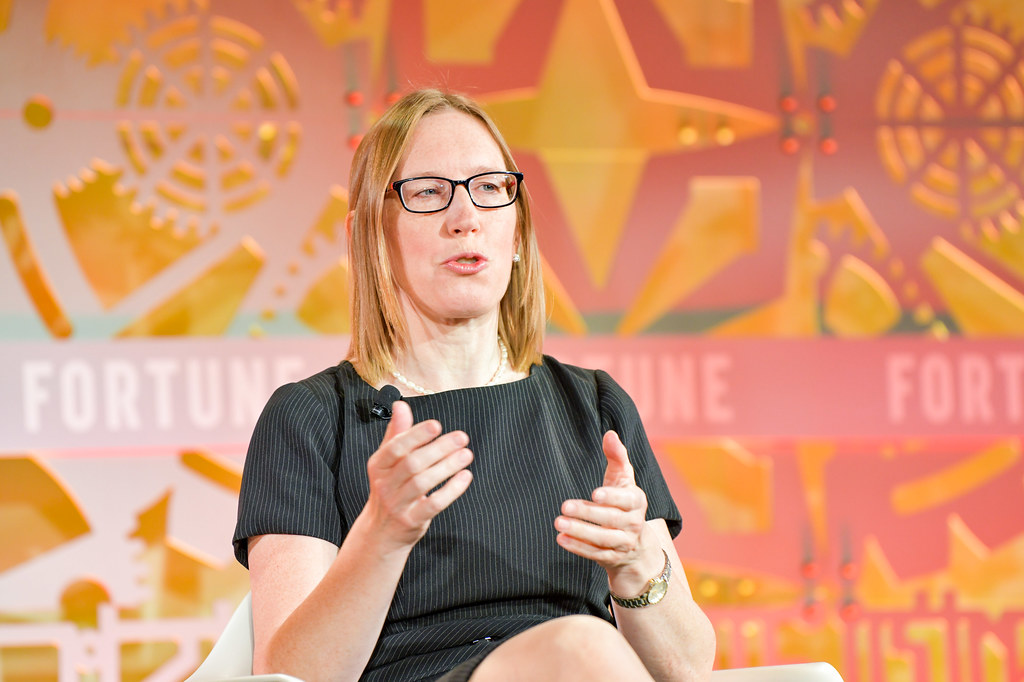
With the SEC stepping away from regulating most meme coins, investors should not expect any official guidance or protection regarding $TRUMP, according to veteran SEC Commissioner Hester Peirce. Earlier this year, the SEC clarified that most meme coins do not qualify as securities under U.S. federal law, effectively removing these tokens from its regulatory oversight. This decision came shortly after President Donald Trump launched his own meme coin, $TRUMP, which experienced an immediate surge in value.
Peirce likened the situation to the rise of nonfungible tokens (NFTs) in 2021, noting that while NFTs weren’t classified as securities, their value fluctuated significantly based on market activity. She emphasized that the SEC missed a chance to publicly inform investors that it would not be stepping in to regulate meme coins, saying, “People, if you are expecting that there’s SEC protection around these, you should not expect that.”
In simple terms, Peirce’s advice to investors is clear: buy at your own risk.
Political Context and Growing Industry Influence
Since President Trump took office in January, the SEC has softened its enforcement stance toward cryptocurrencies, adopting a more industry-friendly approach. This shift has stirred controversy, especially as Trump and his family have deepened their involvement in the crypto space, drawing criticism from Democratic lawmakers who allege potential conflicts of interest.
The $TRUMP token, controlled 80% by the Trump Organization and affiliates, stands as a central element in the president’s expanding crypto holdings. Like most meme coins, $TRUMP lacks intrinsic value but experienced a rapid rise to a $15 billion market cap shortly after its launch, driven by Trump’s public endorsements. Despite a swift crash in value, the token’s creators continue to earn fees on each trade.
The White House maintains that Trump’s assets are held in a trust managed by his children, denying any conflict of interest. Yet, Sen. Richard Blumenthal and other Democratic lawmakers warn that the Trump family’s crypto interests could serve as backdoors for foreign or corporate influence.
Meanwhile, crypto billionaires previously targeted by the SEC, such as Binance founder Changpeng Zhao, are regaining political and financial clout. Notably, the SEC dropped its lawsuit against Binance, ending one of the agency’s most aggressive enforcement actions in the crypto sector.
Commissioner Peirce defended the SEC’s recent strategic retreat from heavy-handed regulation, explaining that the agency lacked clear rules around emerging crypto technologies. She stressed that the SEC is focusing on creating clear regulatory frameworks before ramping up enforcement, exemplified by the recent rescindment of a controversial policy that restricted traditional financial institutions from offering crypto custody services.
What The Author Thinks
The SEC’s cautious approach to regulating meme coins and crypto assets is a necessary step toward creating a balanced market environment. Overregulation risks stifling innovation and pushing activities underground, while under-regulation leaves investors vulnerable. Establishing clear, fair rules before strict enforcement will help protect consumers without choking growth in this rapidly evolving industry.
Featured image credit: Fortune Brainstorm Tech via Flickr
For more stories like it, click the +Follow button at the top of this page to follow us.
